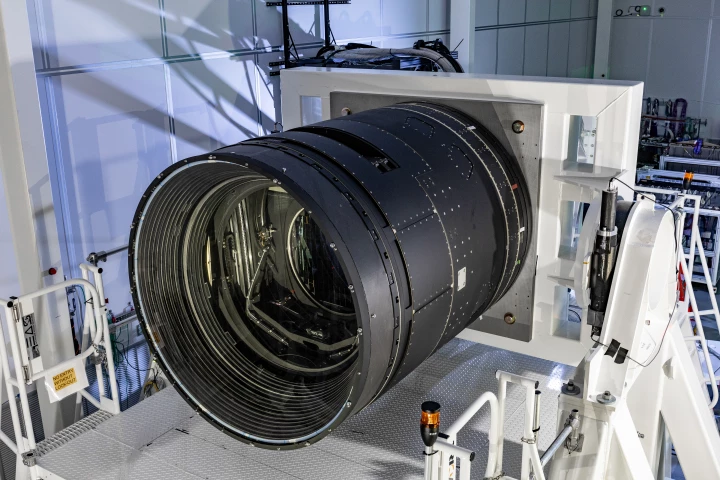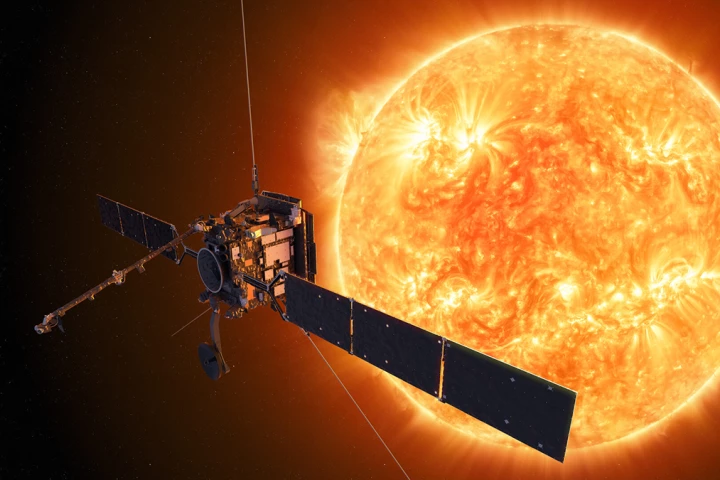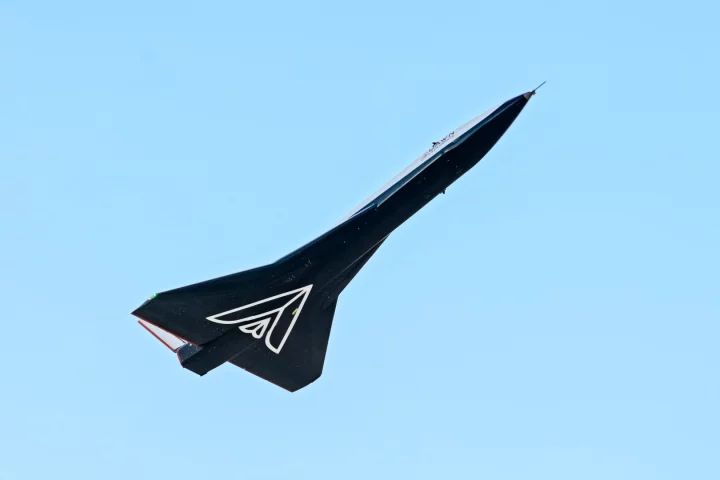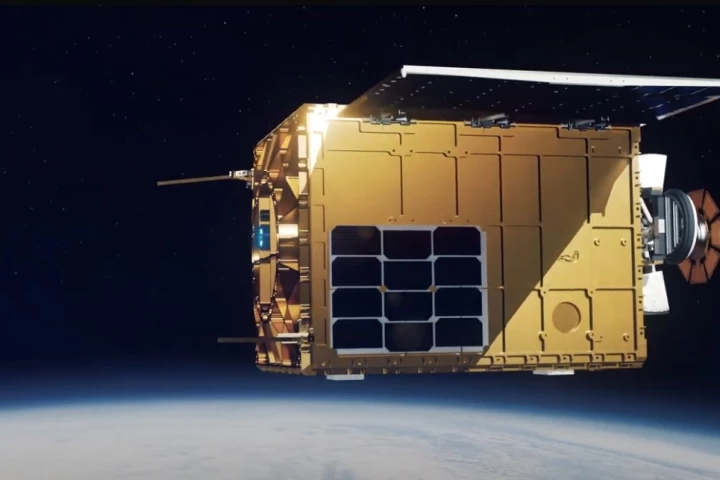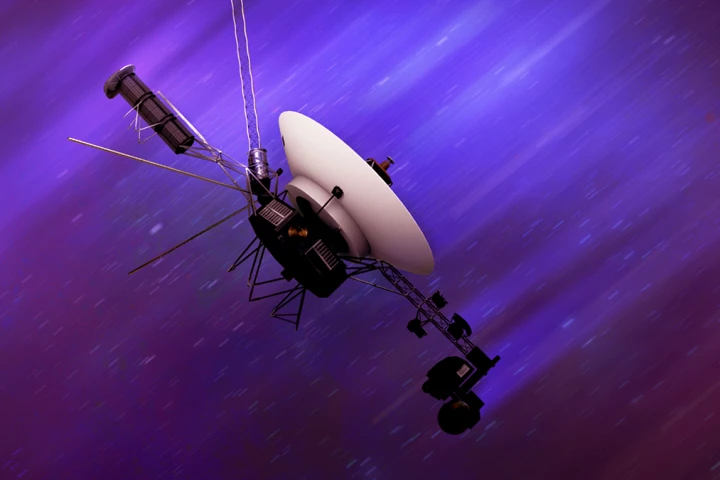Space
From quasars to black holes and CubeSats to crewed spacecraft, New Atlas keeps you up to date with the latest space news and fantastic images from the final frontier.
Top News
-
A retro-futuristic spacecraft with a mixture of the old and new has passed a major milestone as it's readied for its debut orbital mission. Sierra Space has announced that its Dream Chaser cargo spaceplane has demonstrated that it can handle payloads.
-
The good news is that there's a vast ocean of water under the surface of Mars – enough to cover the entire planet to a depth of a mile (1.6 km). The bad news is that this repository is so deep and unreachable that it might as well be in another galaxy.
-
If you've been wondering how long the day on Uranus is, you probably need to get out more. But if you have, you'll be interested to know that observations by the Hubble Space Telescope have shown that it's 28 seconds longer than previously thought.
Load More
Latest News
-
July 12, 2025 | David SzondyNew discoveries by NASA's Curiosity Mars rover may not only explain why the Red Planet is a dry, lifeless desert, but that it may have been on an inevitable path to being a dead world despite being so similar to Earth. And the Sun is to blame.
-
July 08, 2025 | David SzondyIf you're hoping that we can avoid the attention of alien civilizations by lying low, it's a bit late now. A new study released by the Royal Astronomical Society indicates that our radar systems are already screaming our location to ET eavesdroppers.
-
July 06, 2025 | David SzondyNASA's beleaguered Mars Sample Return mission may get a reprieve from an unexpected source. Lockheed Martin has proposed a streamlined, lower-cost alternative that could slash the mission’s price tag by more than half.
-
June 28, 2025 | Paul RiddenAfter decades of planning and building, the world's largest digital camera at the heart of the Vera C. Rubin Observatory on the summit of Cerro Pachón in Chile has snapped its first imagery – from test observations spanning a 10-hour window.
-
June 28, 2025 | David SzondyESA has found a way to make its own solar eclipses more or less on demand and all it took was a pair of robotic spacecraft flying in a formation precise to within a millimeter of each other thousands of miles from Earth. Simple.
-
June 27, 2025 | David SzondyWhat will the orbital spacecraft of tomorrow look like? If Dassault Aviation has its way, it could be similar to its Véhicule Orbital Réutilisable de Transport et d’Exploration (VORTEX) reusable spaceplane unveiled at the recent Paris Air Show.
-
June 22, 2025 | Jay KakadeA new collaborative project dubbed the COSMOS-Web field has compiled the most comprehensive cosmic map ever, including images of the early universe as far back as 13.5 billion years.
-
June 21, 2025 | David SzondyMaybe cars, trucks, and motorcycles aren't exciting enough, because Honda is moving into space vehicles. The company has announced that it has successfully flown a reusable rocket to an altitude of almost 300 m (1,000 ft) and then safely landed it.
-
June 15, 2025 | David SzondyESA's Solar Orbiter deep-space probe has made history, returning the first-ever images of the Sun's south pole. It's a world first that sheds a great deal of light on the mysteries of our parent star, but it wasn't easy to achieve. Very far from it.
-
June 01, 2025 | David SzondyDawn Aerospace seems to want to play with the big kids as it announces that it will be selling its spaceplane directly to customers the same way that airliner manufacturers market their aircraft, suggesting a major shift in space launch business models.
-
May 27, 2025 | Paul RiddenA US startup is looking to our closest satellite to fill a resources gap here on Earth. Interlune and partner Vermeer have revealed a full-scale excavator prototype that forms a key component of its lunar resource Harvester.
-
May 25, 2025 | David SzondyOn May 31, Voyager 1 will be the guest of honor at what may be the most exclusive concert in history. To mark the 200th birthday of Johann Strauss II, ESA will beam a live performance of "By the Beautiful Blue Danube" to NASA's deep space probe.
-
May 22, 2025 | David SzondySatellites could have a longer life and space become a bit tidier if Starfish Space's Otter Pup 2 mission pans out. Scheduled to launch later this year, it aims to demonstrate how a small craft can dock with unprepared satellites for service or disposal.
-
May 18, 2025 | David SzondyIt was race against time as NASA engineers recently raced to fix a thruster problem aboard the vintage Voyager 1 deep space probe. It's hard enough to repair a craft at the edge of the solar system, but this time they faced a potentially deadly deadline.
-
May 11, 2025 | David SzondyA potentially destructive Soviet Venus lander that was lost in space for over half a century has reentered the Earth's atmosphere. Tracked by various space agencies and individuals, the capsule crashed on May 10 somewhere in the Indian Ocean.
Load More






